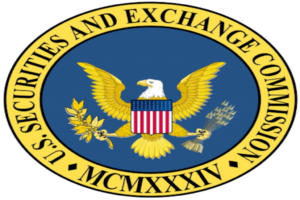
In a landmark case, the Supreme Court has struck down the Securities and Exchange Commission’s authority to use in house-tribunals when seeking civil penalties against those accused of securities fraud. The Court, in the case of SEC v. Jarksey, ruled that when the SEC seeks civil penalties from defendants for securities fraud, the Seventh Amendment requires it to bring the action in a court of law where the defendant is entitled to a trial by jury.
When the SEC seeks to punish those who commit civil crimes, such penalties are enforced exclusively in fines. The Court reasoned that since “relief is legal in nature when it is designed to punish or deter the wrongdoer rather than solely to ‘restore the status quo,’ such fines can only be enforced in courts of law.”
The SEC argued that the “public rights” exception to the Seventh Amendment applied, allowing Congress to grant the right to adjudicate a case to an agency without a jury. To fall under this exception depended on whether the SEC was enforcing “public rights” belonging to the government or seeking remedies similar to those sought by private parties. Ultimately, the Court decided that securities fraud did not trigger the exception and as a result meant that Congress could not delegate adjudication rights to the SEC.
Before this ruling took place, the SEC was able to initiate enforcement actions before administrative law judges, who rendered a final decision regarding the case at hand. Now, if the SEC seeks civil penalties like fraud, it must do so in a federal court. “Now the entire federal government is forced to play by the same litigation rules as everyone else—in real courts before real judges, just as our Founders intended,” S. Michael McColloch, Jarksey’s attorney, said.
Implications of the Court’s Ruling
Although this decision is a significant one, it is not unexpected. Due to its anticipation of a ruling similar to this one, the SEC, in recent years, has begun to pursue enforcement actions in federal court as opposed to internal forums. “The SEC anticipated this outcome, so I don’t think the ruling marks a seismic shift,” said Allison Kernisky, a securities litigator at Holland & Knight.
Nevertheless, this decision may potentially affect its overall success rate in securities fraud cases. Historically, the SEC has had a much higher success rate in in-house administrative proceedings, winning 90 percent of those cases compared to 69 percent in federal court. This decision is also likely to lead to an increase in the number of contested cases, rather than those settled before a complaint is filed.
The consequences from this decision will require the SEC to address the approximately 200 open administrative proceedings as well as reassess their use of in-house tribunals. Its reconsideration may result in a sense of hesitancy to use such proceedings for any enforcement actions that seeks civil penalties however, only time will tell. ![]()
Jacob Horowitz is a contributing editor at Compliance Chief 360°

